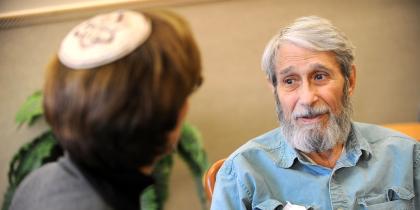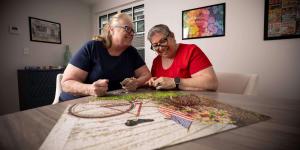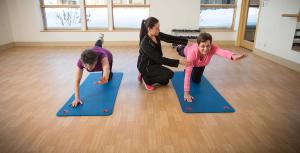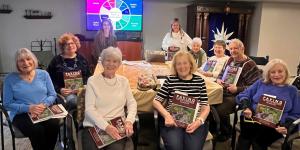Yom Kippur Fasting Exceptions
Is it safe for seniors to fast on Yom Kippur?

For many older Jewish adults, fasting on Yom Kippur is a religious and cultural imperative as well as a lifelong tradition. In fact, many seniors who may not be traditional in other ways continue the practice of abstaining from all food on this holiest day of the Jewish year, the Day of Atonement.
But is it safe for seniors to fast? And what does Judaism have to say for those whose health issues may make fasting dangerous?
Perhaps not surprisingly, Jewish law directs sick people to consult a physician. The priority is always to err on the side of health. For example, if a patient feels well enough to fast, but their physician disagrees, the patient is directed by Jewish law to skip the fast. Conversely, if a patient does not feel well enough to fast, but their physician believes they are healthy enough to do so, again the patient is instructed not to fast. Jewish law also offers that those who need to eat for health reasons may observe the fast by eating in small quantities throughout the day, rather than traditional meals.
But even the small-snacks route can cause problems for seniors with certain health conditions. Dr. Jennifer Rhodes-Kropf, a Hebrew SeniorLife staff geriatrician and assistant professor of medicine at Harvard Medical School, encourages all seniors to consult a physician before any fast — especially those with the following specific medical issues:
- Diabetes: “If someone has diabetes and they are on diabetes medication, they absolutely should talk to their physician about whether and how to fast safely,” Dr. Rhodes-Kropf urges. Taking the usual medication without eating can induce hypoglycemia, a condition in which blood glucose levels become dangerously low.
- Chronic Pain: There are certain pain medications, like non-steroidal anti-inflammatory drugs (NSAIDs) and narcotics, that are advisable to take only with a full stomach. NSAIDs include common drugs like aspirin, ibuprofen, and naproxen.
- Dizziness: For most seniors, Dr. Rhodes-Kropf recommends some level of hydration. Insufficient fluid intake increases the risk of dizziness and falling.
- Hypertension: If you are reducing your fluid intake, blood pressure medication may need adjustment. Going off these medicines suddenly can be dangerous, so consult a professional first.
“Even if you are older, fasting can be done safely if it is important to you. The key is making the decision thoughtfully, considering one’s medical conditions and doctor’s advice,” says Dr. Rhodes-Kropf.
Rabbi Karen Landy, manager of Religious and Spiritual Care Services at Hebrew Rehabilitation Center, adds there are many ways for seniors to have a meaningful Yom Kippur, fasting or not. “The obligation to fast is about inflicting your soul,” she explains. “While some suffering is intended, the idea is to put aside worldly pleasures during this day such that you can reflect on the themes of Yom Kippur: repentance and renewal. It’s a time to focus on the meaning of life — to open up your heart to new possibilities — and set personal goals for the year ahead.”
This reflection can be achieved in many personal ways beyond the realm of food, including attending religious services, reading reflective texts, and contemplation. “Fasting does not define Yom Kippur,” she says. To help non-fasters put their eating in context with the purpose of the day, Rabbi Landy offers a Prayer for Yom Kippur for One who Cannot Fast as a possible meditation. A Mitzvah to Eat also offers resources on connecting to Yom Kippur if you need to eat.
Hebrew SeniorLife wishes all who observe a safe fast and healthy new Jewish year.
Blog Topics
Learn More
Spiritual Care Programs
Spiritual care programming is an important part of life on every Hebrew SeniorLife campus, with a full team of interfaith chaplains available to connect each resident, patient, and family member with the spiritual resources that resonate most for them.




